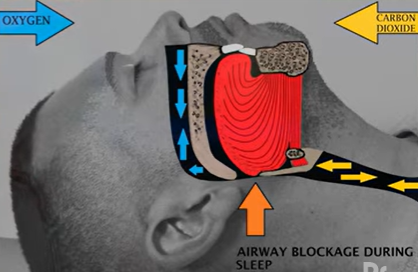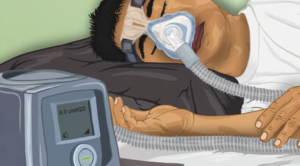Snoring: A Silent Threat You Shouldn’t Ignore
Snoring might seem like a harmless habit—something you laugh about during family gatherings. But did you know that the person snoring could be silently battling a serious health issue?
Yes, snoring can be a silent killer.
Let’s dive deeper into what snoring really is, why it happens, and why it shouldn’t be taken lightly.
What Causes Snoring?

Snoring occurs when there’s a blockage in the airflow through your nose and throat. Normally, air flows freely as we breathe. But during sleep, the muscles around the throat relax, and in some people—especially those who are overweight or have excess soft tissue—the airway gets partially blocked.
This obstruction causes vibrations that result in the sound we call snoring.
However, when the obstruction becomes severe enough to completely stop breathing for short periods, it leads to a condition known as Obstructive Sleep Apnea (OSA).
Understanding Obstructive Sleep Apnea (OSA)
OSA is a sleep disorder where the airway becomes repeatedly blocked during sleep, leading to breathing interruptions.
This means the person may stop breathing for several seconds, multiple times during the night—often without realizing it.
Why is OSA Dangerous?
When breathing repeatedly stops during sleep:
-
Oxygen levels in the body drop
-
Carbon dioxide builds up
-
The heart and brain are under stress
Over time, this results in a range of serious health problems including:
-
High blood pressure
-
Type 2 diabetes
-
Heart attacks
-
Stroke
-
Weight gain
-
Memory problems
-
Chronic fatigue
-
Mood disorders
Signs You Might Have OSA
Watch out for these red flags, especially if you or someone in your family snores:
Nighttime Signs:
-
Loud, persistent snoring
-
Sudden silence followed by choking or gasping
-
Frequent awakenings or restless sleep
-
Sweating during sleep
Daytime Signs:
-
Feeling tired even after a full night’s sleep
-
Headaches in the morning
-
Irritability or mood swings
-
Difficulty concentrating
-
Falling asleep while watching TV or reading
If these symptoms sound familiar, it’s time to see a doctor.
What Happens if OSA is Left Untreated?
Ignoring OSA can be fatal. Repeated oxygen deprivation can lead to:
-
Chronic hypertension
-
Heart failure
-
Type 2 diabetes
-
High cholesterol
-
Increased risk of stroke
-
Obesity
-
Cognitive decline
-
Depression
-
Impaired alertness, leading to accidents
Treatment Options: Managing and Overcoming OSA
1. Weight Loss
Reducing excess body weight can significantly reduce snoring and OSA symptoms, especially in overweight individuals.
2. CPAP Therapy

One of the most effective treatments for moderate to severe OSA is the CPAP (Continuous Positive Airway Pressure) device.
How CPAP Works:
-
A mask covers the nose or both nose and mouth.
-
A gentle, steady stream of air keeps the airway open throughout the night.
-
This prevents airway collapse and ensures uninterrupted breathing.
Benefits of CPAP Therapy:

-
Improved sleep quality
-
Reduced daytime sleepiness
-
Lower blood pressure
-
Decreased risk of heart disease
-
Better concentration and mood
Choosing the Right CPAP Machine
When selecting a CPAP device, comfort is key. Many people stop using their machine simply because it’s uncomfortable.
What to Look For in a Good CPAP Machine:
-
Auto On/Off Feature: Automatically starts when you wear the mask.
-
Humidification: Moistens the air to prevent dryness and irritation.
-
Flow Sense Technology: Adjusts pressure based on your breathing pattern.
-
Auto Pressure Adjustment: Lowers pressure during exhalation for ease.
-
Central Sleep Apnea Detection: Detects breathing problems caused by the brain and not just obstruction.
Recommended: Oxymed CPAP Machine
This model comes with advanced features like:
-
Auto humidification
-
Pressure adjustment
-
Flow Sense technology
-
Central sleep apnea detection
-
Affordable pricing
It’s designed to provide comfort and promote consistent usage—two crucial factors for effective treatment.
Take Action Now
Three important steps to protect yourself and your family from the dangers of snoring and OSA:
-
Identify the signs – If you or someone snores and shows signs of fatigue or mood issues, it could be OSA.
-
Consult a doctor – A sleep specialist or pulmonologist can diagnose OSA through a sleep study.
-
Use the right device – If recommended, use a quality CPAP machine with patient-friendly features.
Final Thoughts
Snoring isn’t just a nighttime nuisance—it’s often a sign of a deeper problem. Obstructive Sleep Apnea can silently damage your heart, brain, and overall health if not addressed in time.
By staying alert to the signs and seeking proper medical help, you can restore restful sleep and protect your long-term well-being.